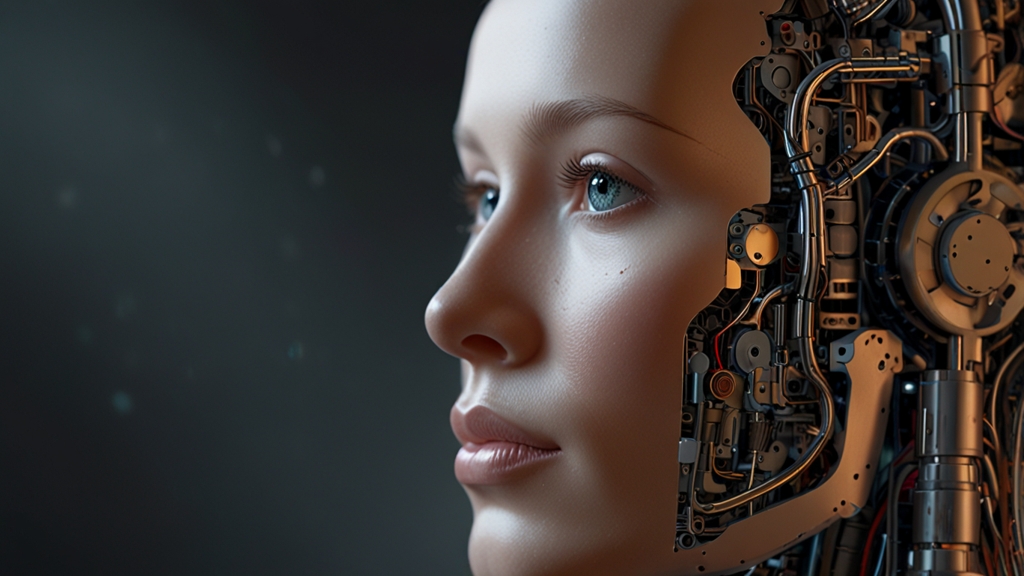The Rise of the Machines: Are We Ready for the AI Revolution?
The advent of artificial intelligence (AI) has ushered in an era of unprecedented technological advancements. From transforming mundane tasks through automation to revolutionizing industries with predictive analytics, AI's integration into daily life is becoming increasingly prevalent. However, as we stand on the cusp of what many term the AI revolution, an important question arises: Are we truly ready for this seismic shift?
The Current Landscape of AI
AI is no longer the stuff of science fiction. It permeates various sectors, bringing about transformative changes. In healthcare, for example, AI algorithms can predict patient outcomes and assist in disease diagnosis with remarkable accuracy. In finance, AI-powered algorithms detect fraudulent activities and optimize trading strategies.
Moreover, the rise of conversational bots and virtual assistants like Siri, Alexa, and Google Assistant has brought AI into our homes, making daily tasks more convenient. Autonomous vehicles, though still in the development stages, promise safer transportation systems. The industrial sector is experiencing enhanced efficiencies through AI-driven predictive maintenance and quality assurance systems.
The Benefits of AI Integration
AI offers a myriad of benefits that, if leveraged correctly, can lead to tremendous societal advancements. Enhanced decision-making processes, cost reductions, and significant time savings are among the foremost advantages. By automating repetitive tasks, AI frees up human potential for more creative and complex problem-solving endeavors.
“Automation applied to an efficient operation will magnify the efficiency. Automation applied to an inefficient operation will magnify the inefficiency.” — Bill Gates.
Bill Gates’ statement underscores the potential duality of AI impacts. When integrated within efficient systems, AI can amplify productivity and innovation. Conversely, if applied to flawed systems, it may exacerbate inefficiencies. This highlights the critical need for thoughtful and strategic implementation.
Challenges and Ethical Considerations
Despite the groundbreaking potential of AI, it is not without its challenges. One of the most pressing concerns is the ethical implications of AI. Issues such as privacy invasion, data security, and the potential for biased algorithms lead the discourse on the ethical deployment of AI technologies.
Another significant challenge is the potential for job displacement. As AI systems become more competent, there is a growing fear that they may render certain job roles obsolete. Industries highly dependent on routine tasks are particularly susceptible to this disruption.
“Technology, through automation and artificial intelligence, is definitely one of the most disruptive sources.” — Alain Dehaze.
Alain Dehaze’s insight brings attention to the disruptive nature of AI. While it creates new opportunities, it simultaneously displaces traditional roles, necessitating a strategic approach to workforce development and retraining.
Preparing for the AI Revolution
To adapt to the rapidly changing landscape, a multi-faceted approach is essential. Governments, educational institutions, and private organizations must collaborate to ensure a smooth transition into the AI era.
Education and Workforce Development: A focus on education and reskilling programs is imperative. Encouraging learning in AI, machine learning, and data science will equip the workforce with the necessary skills to thrive in an AI-driven future. Additionally, fostering critical thinking and creativity will help areas where AI is less likely to make significant impacts.
Ethical Frameworks and Regulations: Establishing clear ethical guidelines and robust regulatory frameworks can ensure responsible AI deployment. These measures should address issues related to data privacy, algorithmic transparency, and accountability.
Public Awareness and Engagement: Engaging the general public in discussions about AI's impact is crucial. Public awareness campaigns and transparent communication by stakeholders can build trust and foster a culture of informed acceptance.
Conclusion
The AI revolution, with all its potential and pitfalls, is undeniably on the horizon. While AI promises immense benefits, its integration must be managed with foresight and responsibility. By addressing the ethical, educational, and workforce challenges, society can harness the power of AI to create a future where technology enhances human capabilities rather than limits them.
As we continue to witness the rise of the machines, the question remains not whether AI will revolutionize our world, but whether we are prepared to navigate this transformation with wisdom and resilience.








